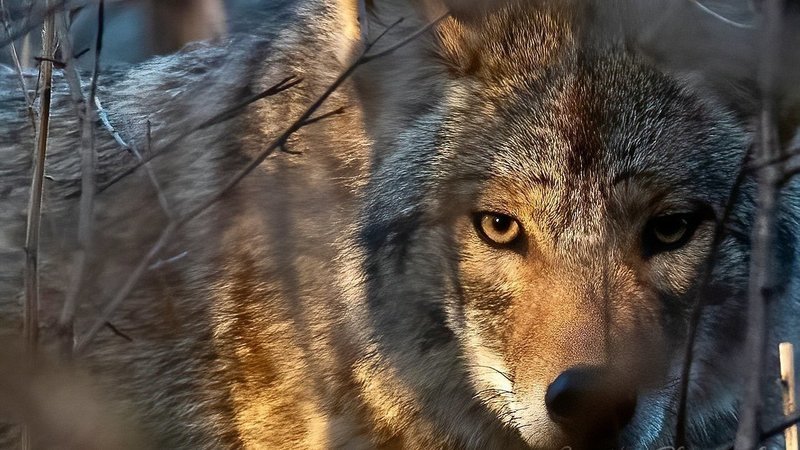In this blog, we'll look at how men and women at serving Jesus Christ both at home and abroad. We'll focus on how God is using their work to transform the lives of people all over the world.
Friday, April 30, 2021
Witness, Share and Evangelize: Today in the Mission Yearbook - Putting the fun in fundraising
Change.org - Killing animals for cash prizes?
| |||||||||||||||
| |||||||||||||||
Wildlife killing contests take place throughout the United States. These contests put cash prizes on Coyote, Lynx, Bobcat, Wolves, Fox, Skunk, and other predators. Contests can be held by weight, amount of predators bagged or largest predator killed within a given amount of time, with teams hauling in truckloads of animals for the count. These contests operate largely under the radar in Minnesota, knowing that public support would be virtually nonexistent. Wildlife Killing contests are not hunting: they are barbaric practices that promote mass killing of species by any and all means, from baiting and trapping, shooting, and poisons, to running animals down in vehicles. Many of these events will justify the behavior as a form of population control, but experts have largely disputed this claim stating that Wildlife Killing Contests hold no ecological value. Contests like this are unregulated with no real set rules or limits, and hold no place in Minnesotas traditionally sportsman-like outdoor recreation. With many states choosing to outlaw these grosume contests, Minnesota can be the next to do so with your help. Be a friend to our natural predators, and sign the petition to introduce legislation to end Wildlife Killing Contests in the Land of 10,000 lakes. | |||||||||||||||
| |||||||||||||||
|
Change.org - Honorary graduate
| |||||||||||||||
| |||||||||||||||
This is Julia McCarthy. She was supposed to be a senior at Rockwood Summit High School this year, but she sadly committed suicide a week before Sophomore year started on August 10, 2018. One of her friends asked the school if we could have a chair of remembrance for her at Graduation and the school said okay as long as her parents said yes. Not only did her parents say yes, but said they wanted it so we could honor their daughter. Now, the school changed their mind because they said it would “upset too many students”. We owe it to our past classmate to honor her in the way we couldn’t when she passed. I have created this petition in that hope you all will sign in honor of her. Yes it is sad, but the fact is that it happened and she deserves to be remembered, not forgotten because it’s easier for the school. I’m begging all of you students, parents, and teachers to sign and also email the senior office saying you also want this chair of remembrance for Julia McCarthy. Thank you. | |||||||||||||||
| |||||||||||||||
|
Protect people, not patents
 |
Adam Russell Taylor When I received my second vaccine shot, it felt like a dose of hope. I likened this overwhelming sense of gratitude and relief to receiving a shot of vibranium, the rare, super-powered metal from Wakanda in my favorite Marvel movie, Black Panther. Here in the United States, the supply of COVID-19 vaccines is now plentiful. In fact, this nation moved so aggressively to ensure enough vaccine for its own people that the ONE campaign estimated “the federal government has secured 550 million more doses than it needs to cover every American.” Given this national surplus, the main barrier to defeating the virus in the U.S. is vaccine skepticism. For those of us who have been fortunate enough to receive the vaccine, we must pay it forward by working to persuade everyone who can safely take the vaccine to do so. But in many other parts of the world, it’s a different story. While almost 43 percent of the U.S. population has received at least one COVID-19 shot, few other nations are anywhere as close. Overall, only 7.4 percent of the world’s population has had at least one dose of vaccine. Meanwhile, the global numbers of new cases and deaths have both risen in recent weeks, with reported cases recently passing 800,000 cases per day, an unfathomable record-high for the pandemic.
|
ADVERTISEMENT |
 |
Our Latest Coloradans Carry the Trauma of Mass Shootings In Our Bones (by Cassidy Klein) But we also hold the comfort of the Rockies. The Recent Amazon Union Effort Failed — Churches Can Help (by Dean Dettloff) Organizers and Christians in Bessemer wonder what went wrong — and how future attempts at unionizing the Amazon facility could be different. Why Nathan Cartagena Teaches Critical Race Theory to Evangelicals (by Mitchell Atencio) The Wheaton professor isn’t interested in the culture wars, he’s trying to transform the church with “godly race-consciousness.” Black Like Jazz: Imagining a World Without Police (by Josiah R. Daniels) How jazz taught me to resist videos of memed violence where Black pain is only spectacle. |
ADVERTISEMENT |
 |
From the Magazine Dan Berrigan’s Hidden Works of Mercy (Patrick Henry) The well-known peace activist spent much of his life bringing comfort to the dying. |
ADVERTISEMENTS |
Digital Campaigner, Faithful America Faithful America is the largest online community of grassroots Christians working to reclaim Christianity from the religious right for social justice. We are seeking an early-to-mid-career online organizer to help design and execute our digital-advocacy campaigns for love, dignity, and justice. Location: Remote. Deadline to apply: May 16. Questions: jobs@faithfulamerica.org Can theological education equip youth to lead differently? The church and society need youth engaging in important theological work to create social change. Youth Theological Network provides a new way of learning for young Christian leaders. |
|
| Unsubscribe or update email preferences Copyright © 2021 Sojourners, All rights reserved. Sojourners | 408 C St. NE | Washington, DC 20002 Email: sojourners@sojo.net | Tel.: 202.328.8842 |
For God’s sake, let's get real on climate change

One of the things I like about religion is that our words carry weight.
Our faiths don't call us to “love someone 50%” or “be compassionate by 2050”. They tell us to do what’s compassionate, loving, and just - now.
Watching last week’s climate summit, it was hard not to notice that while leaders were big on aspiration, there was a lot of hedging. Plenty of “50% by 2035” and “net zero by 2050”.
To the uninitiated, this language may feel powerful or mystifying. In reality, these “promises” obfuscate and dehumanize what’s at stake.
For example, one of the most important moral challenges of the climate crisis is the growing number of climate refugees, millions of them poor farmers in Africa and Asia forced to leave their homes because of droughts, floods, and wildfires.
But almost no political leader is willing to state the obvious - that wealthy countries, responsible for the majority of climate-forcing emissions in the atmosphere, owe a generous welcome to these innocent people and reparations to the world’s most vulnerable nations, some of whom have their very existence threatened by this crisis (for example, all 38 small island developing nations).
Or consider another example - the slippery use of “net zero by 2050” as a smokescreen for relying on inadequate or unproven solutions. Earlier this year, Shell Oil, a wealthy fossil fuel giant, pledged net zero emissions by 2050. How do they plan to do this? Through “nature based solutions” (e.g. planting trees), and Carbon Capture and Storage technology, which is yet unproven at scale.
What’s really needed? Shell, and the entire oil and gas sector, must enter a managed decline and end the fossil fuel era while society massively scales up clean renewable energy.
We understand that these changes are not easy. But the need for them is staring us in the face. Political, financial, and business leaders are failing the most basic test of true leadership by choosing not to speak directly and plainly about the depth of the problem.
As this November’s UN climate negotiations approach, you’ll hear a lot of language that has the dangerous lure of the sirens of Greek mythology. Merchants of spin will tempt us to think that everything is OK when, in fact, we face threats that call for true courage and action based on moral values. Nothing less will suffice.
When grassroots people of diverse religions worldwide created the 10 Sacred People, Sacred Earth Demands, they did so in a spirit of pure-hearted truthfulness.
Then, and only then, we’ll have a prayer of building a better tomorrow.
In solidarity and hope,
Rev. Fletcher HarperMedical Missions Live From Malawi - May 4 | MBF
| |||||||||||||||||||
|
Thursday, April 29, 2021
Witness, Share and Evangelize: Today in the Mission Yearbook - ‘Addressing the root causes of hunger is always better than focusing on the symptoms’
Study, Learn and Grow: Race, faith and climate change
WCC NEWS: Simple vaccination message: 'Do to others, what you want them to do to you'
| ||||||||||||||||||||||||||
|
Action Alert - Rejoin International Systems and Pay UN Dues
1 Corinthians 12:12-14 “For just as the body is one and has many members, and all the members of the body, though many, are one body, so it...

-
Genocide, Worker Rights, and White Christian Nationalism NCC Newsletter July 2, 2021 Click here to donate Recent Interview with Jim Winkl...
-
As we enter this sacred season — a time when many traditions gather to celebrate light in the darkness, rest after a long year, and the endu...
-
View this email in your browser Welcome to the Truth and Action Roundup, a reliable weekly source of information, inspiration, and action f...











